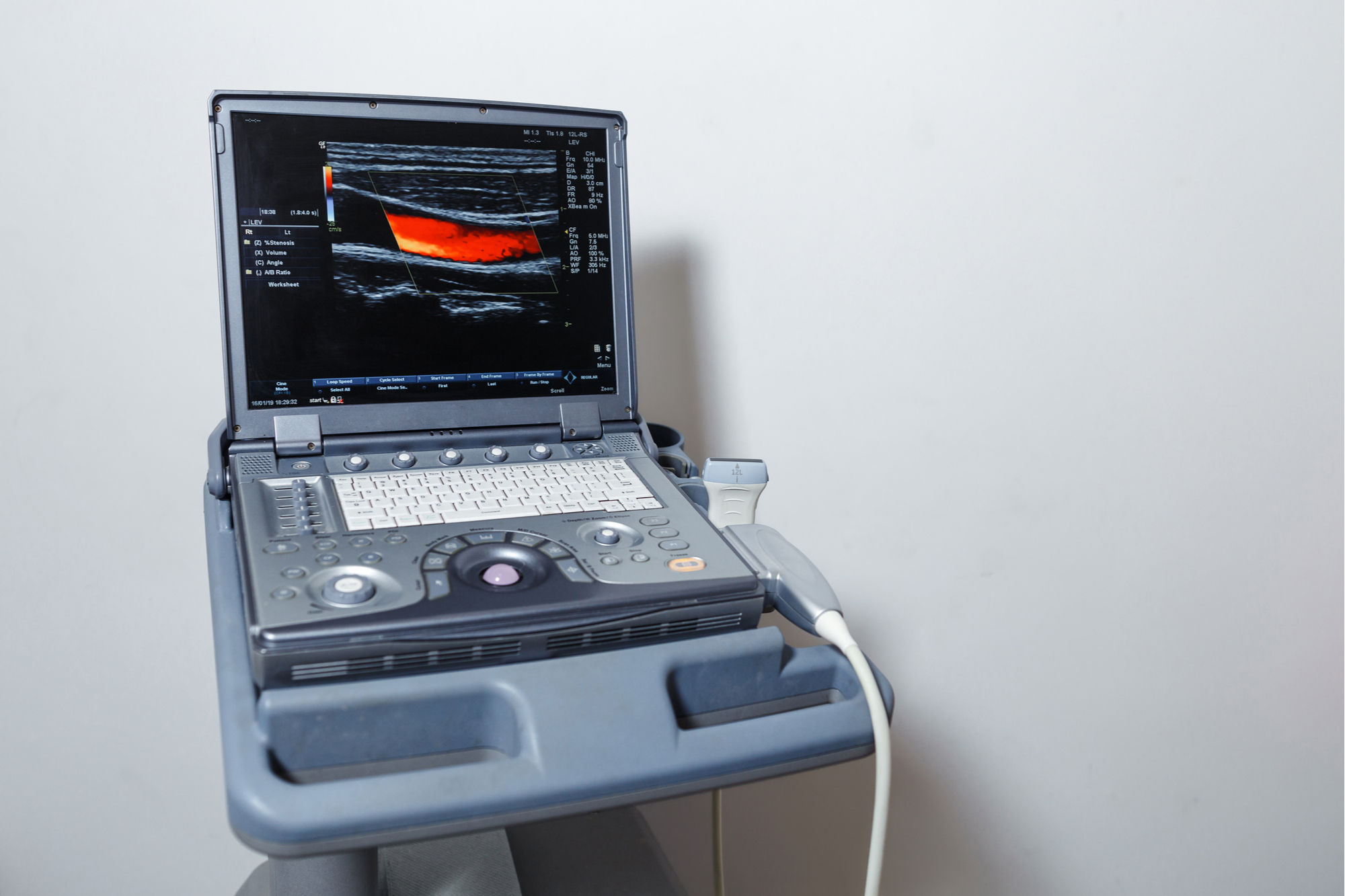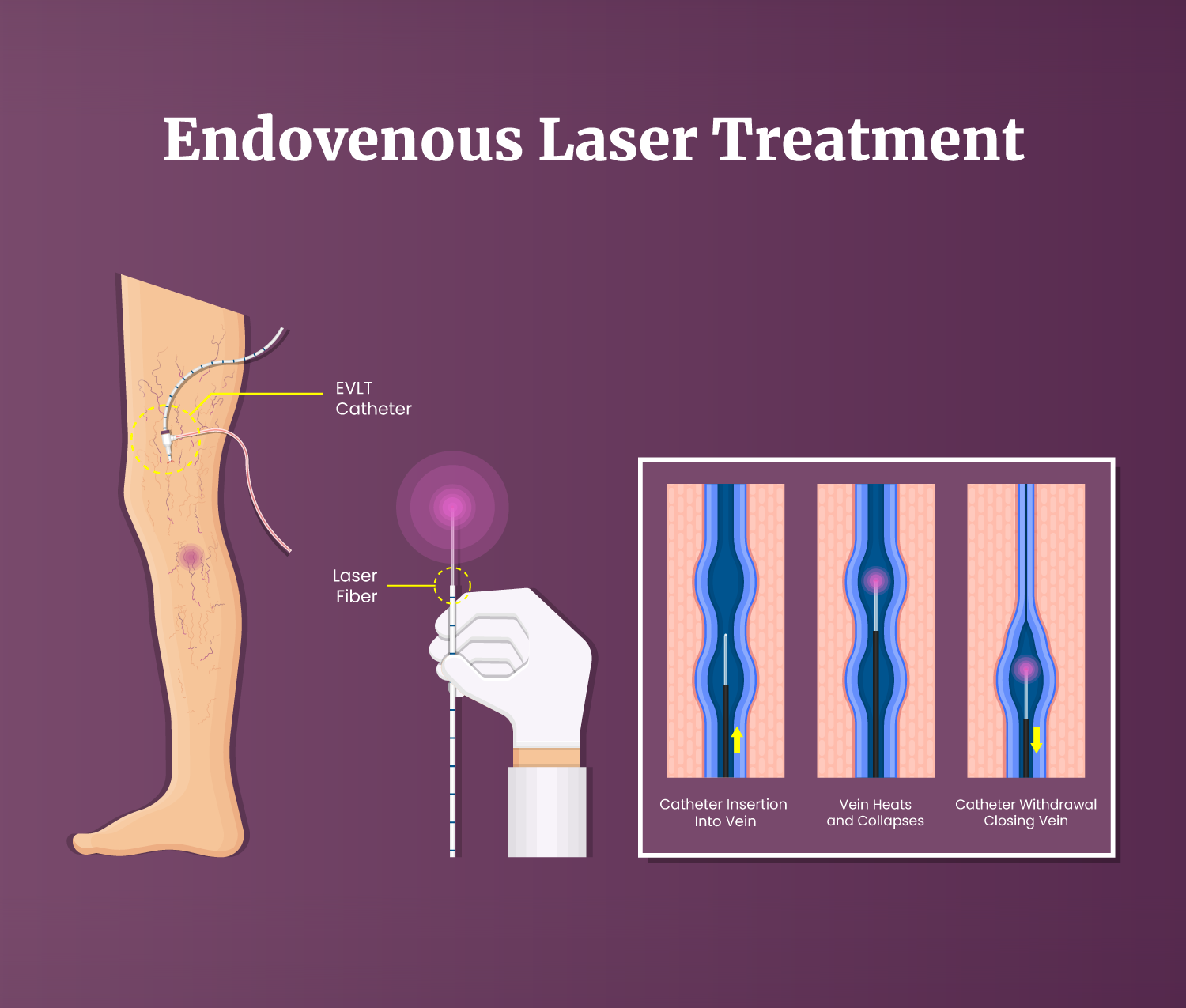EVLT
What Is The EVLT Procedure?

Endovenous laser treatment (EVLT) involves inserting a thin laser fiber into the vein through a tiny entry point in the leg. This entry point depends on the location of the vein being treated. Generally local anesthetic is applied to ensure patient comfort.
The new EVLT laser from AngioDynamics offers better patient results than other technology. The laser specifically targets water with laser energy. Since the vein is mostly composed of water, the laser can efficiently heat the vein with little chance of collateral heating, resulting in an optimal vein ablation.
Contact Us
The EVLT procedure is a quick and effective method for treating varicose veins.
- Treatments are typically less than one hour
- EVLT treatments are performed in our office
- Up to 98% success rate
- Patients can return to normal activities soon after treatment
- No general anesthesia is required
- FDA approved
- Minimal scarring, unlike surgical vein stripping
- Typically covered by insurance
Common Side Effects/Healing process:
- Bruising
- Tenderness/Soreness
- Phlebitis
- Hyperpigmentation
- Mild numbness along treated area
Rare side effects or complications:
- Infection
- Deep Vein Thrombosis
- Pulmonary Embolism
- Hemorrhage
- Necrosis
- Hematoma
Prior to the start of the procedure, our office uses ultrasound to map out the vein. The EVLT procedure uses the latest generation of EVLT® catheter, which has been cleared by the Food and Drug Administration (FDA) for use in the United States, to insert a laser fiber directly inside the faulty vein under local anesthesia.
The treatment works by delivering a targeted dose of laser energy directly into the vein wall, causing it to collapse. This is a process known as ablation. After treatment, the body diverts blood flow to nearby functional veins, improving circulation, and significantly reducing the symptoms of varicose veins. Cosmetic improvement of the varicose veins is often seen. Other procedures like ambulatory phlebectomy may be required to obtain optimal results.
The procedure generally takes less than one hour. Normal everyday low-impact activity is encouraged soon after treatment.
or schedule a free consultation to learn more!


